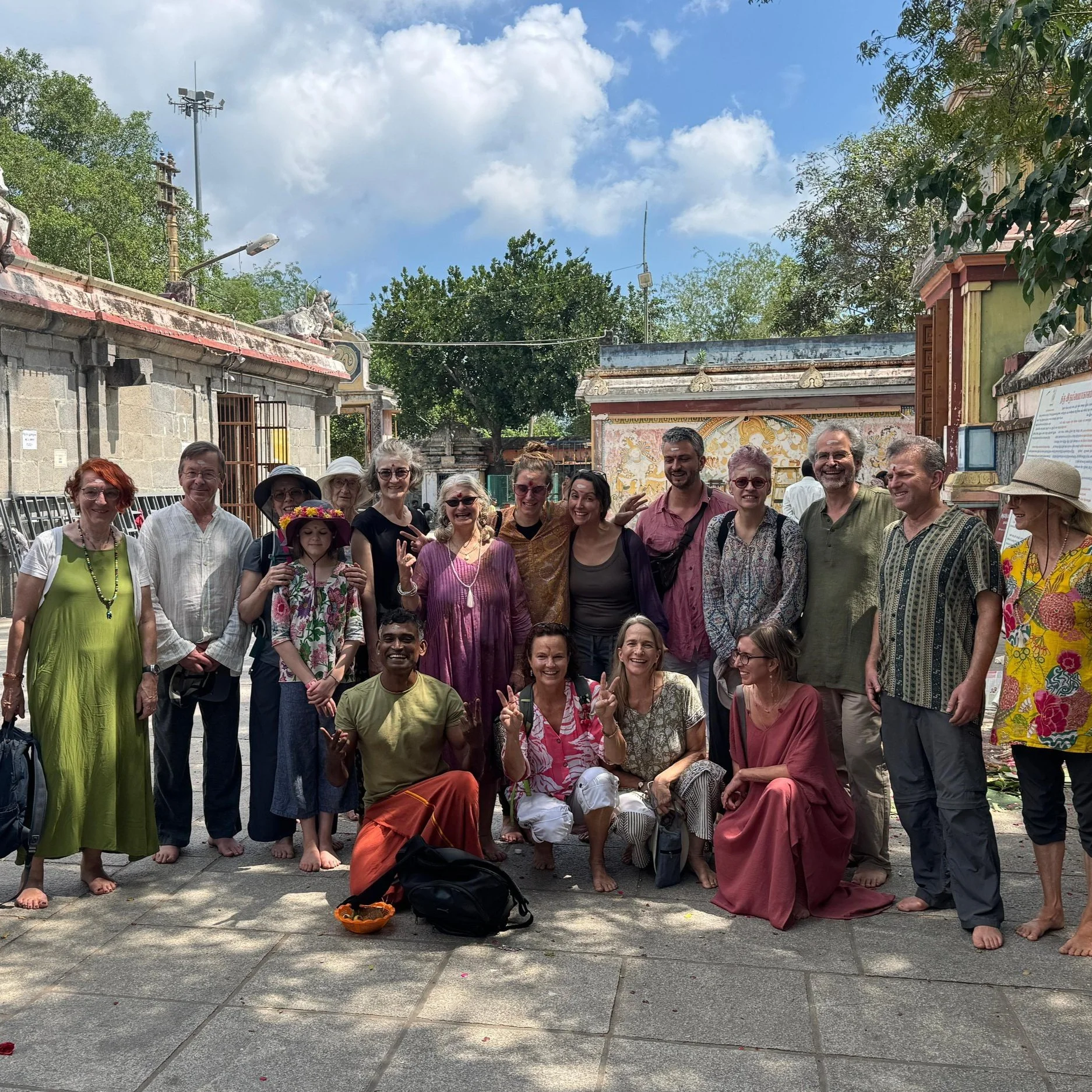Ethics at Ecovillage Tours
Traveling in Right Relationship
Every Ecovillage Tour is more than just a journey to inspiring places — it’s also an invitation to reflect on the deeper ethics of travel. When we visit communities, we’re not just sightseers. We’re stepping into living experiments where people are testing new ways of belonging, sharing, and stewarding land.
Why Ethics Matter in Travel
We live in a world where travel is easier than ever, but the way we travel makes all the difference. Ecovillages are often located in rural or culturally rich regions, where the balance between visitors and locals can be sensitive. Communities may welcome guests to learn and participate — but they also carry their own histories, challenges, and priorities.
For us, being an ethical traveler means asking questions like:
How do communities want to be visited?
What impact do we leave behind?
Are we contributing to local economies and regenerative practices?
Expat Communities and Local Realities
Many of the intentional communities we visit — in places such as Central America, Asia, and even in different territories of Europe — are created by and home to expatriates. This reality brings both opportunities and challenges.
On one hand, expat-led ecovillages can serve as powerful models for regenerative agriculture, permaculture, and alternative governance. They often attract people from around the world who are eager to experiment with new ways of living.
At the same time, these projects cannot exist in isolation. They are built on land with a deep history and in regions where local people also face pressing needs. Questions of land ownership, cultural sensitivity, and economic disparity naturally arise.
This is why, on every tour, we open space for honest conversations:
How do expat-founded communities relate to and learn with locals?
What partnerships are thriving — and where are there tensions?
How can visitors (and ecovillages themselves) support local economies and respect cultural heritage, rather than unintentionally creating harm?
How We Support Communities
At Ecovillage Tours, we believe that ethical travel should benefit both visitors and hosts. To that end, we:
Pay the communities we visit — ensuring their time, hospitality, and energy are fairly compensated.
Support local economies by hiring community-based guides, staying in locally owned accommodations, and ethically sourcing food from nearby farmers whenever possible.
Offer volunteer opportunities when they are desired, providing hands-on support to projects that welcome extra help.
Keep the dialogue open about impact, privilege, and responsibility on all of our tours.
Travel and Impact
Travel has undeniable environmental implications, and we don’t shy away from that reality. At the same time, people will continue to travel — for holidays, for learning, for broadening horizons, for inspiration. Our message is not “never travel,” but rather: when you do travel, travel with intention.
We invite people to visit ecovillages and communities where the focus is on leaving a positive impact. In this way, your travel can actually support those working on ecosystem restoration, regenerative agriculture, and cultural resilience.
Unlike some companies, we do not currently offer a carbon-credit donation program. Participants are welcome to purchase offsets if they choose, but our approach is different: we prefer to directly support the communities we visit, during and after the tour itself. Many of these projects are already engaged in critical ecological work — restoring forests, building soil, protecting watersheds, and regenerating landscapes in ways that are rooted in local knowledge and long-term stewardship.
Rather than funding massive reforestation schemes that often prioritize monocultures and overlook cultural context, we invest in the living, place-based work of communities on the ground and germinate relational cooperation that lives beyond the tour dates. This way, the resources from your travel go straight into the hands of people who are not only imagining a more sustainable world — they are actively creating it.
A Journey of Exploration
We don’t pretend to have all the answers — and perhaps that’s the point. Ethical travel is not a checklist, but an ongoing practice of humility and curiosity.
As travelers, we step into a living dialogue about belonging, stewardship, and reciprocity. Each ecovillage visit offers a chance not just to witness a different way of life, but to practice more mindful ways of being in the world.
Ready to enter the conversation?
Join us on an upcoming Ecovillage Tour.


